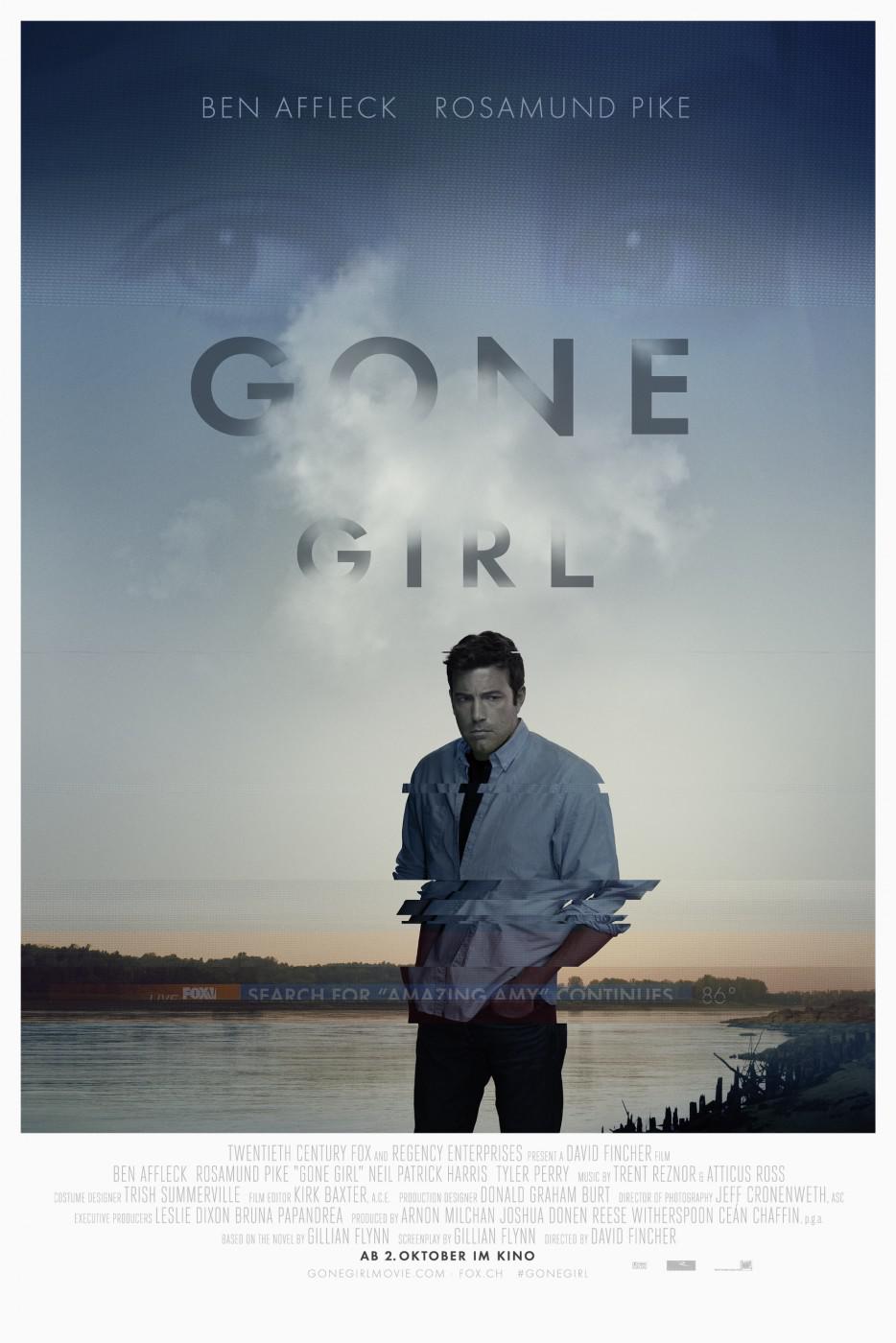 Amy Elliott Dunne is many different things. The woman is of relentless nature whether in filling the epitomized role brought about by her parents’ well-meant perfectionism and their children quiz-books called ‘Amazing Amy;’ in relishing her dominion over personal relations when she has it and insisting on it when she has not; or, in winning, generally. It is almost imprinted in her psyche that she must conform to a set of expectations—be the cool wife, be best and perfect and brilliant and extraordinary, be ‘Amazing-fucking-Amy’—until she finally refuses.
Amy Elliott Dunne is many different things. The woman is of relentless nature whether in filling the epitomized role brought about by her parents’ well-meant perfectionism and their children quiz-books called ‘Amazing Amy;’ in relishing her dominion over personal relations when she has it and insisting on it when she has not; or, in winning, generally. It is almost imprinted in her psyche that she must conform to a set of expectations—be the cool wife, be best and perfect and brilliant and extraordinary, be ‘Amazing-fucking-Amy’—until she finally refuses.
David Fincher, a known craftsman simultaneously praised and condemned of his clinical precision, unsurprisingly identifies with the Frankensteinian monstress. His close attention to detail is undoubtedly at play here and made efficient use in reading the film emotionally. The faintest twitch, the smallest flicker of the eye, and the most uncomfortable of gestures—each tell little stories of their own.
In the pages of Gillian Flynn’s novel (on which the film is based) Amy is a deeply disturbed woman, a by-product of a childhood that has been generally didactic (“Your parents basically plagiarized your childhood,” her husband points out), the ramming perfectionism around her and her personal taste for it. I am not completely moonstruck by the novel; it is in truth a worthwhile read if only for its darker preoccupations. But then in Fincher’s frames, all infinitely intriguing, we meet one of the most nuanced and most intriguing female characters of contemporary mainstream cinema; Rosamund Pike’s electric performance does her justice.
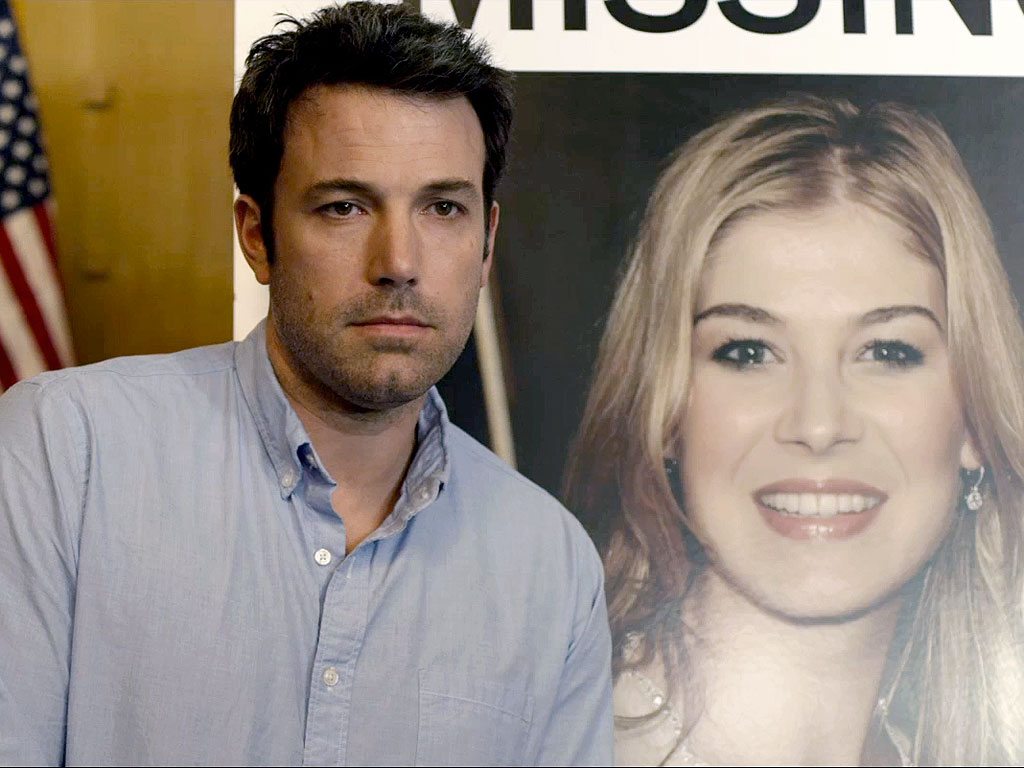
It is the same story, the same witch hunt: in the morning of their fifth wedding anniversary Amy (Pike) disappears from her home, her husband Nick Dunne (Ben Affleck) left with only clues that remind him of their marriage’s dents. Yet, as ever, Fincher elevates the story from passingly enthralling into a truly remarkable work. As one friend critic points out ever so simply, “In Fincher, you believe.”
It is a collaborative work, for certain. Besides landing a terrific ensemble, Fincher employs great people to work on image and sound: Kirk Baxter’s nervy editing rhythms; Jeff Cronenweth’s gloomy cinematography; and Trent Reznor and Atticus Ross’ beautifully bleak score. The two-and-a-half-hour running time winds past us with one scene after the next, all packed with cinematic intrigue.
It is also very smart to seek Flynn’s translation so as to preserve her novel’s curious if somewhat clouded visions into film. She does this illustriously and with an ample sense of self-awareness; the ending she modifies to give her principal characters more empathy than what is allowed in her novel. “I am so sick of being picked apart by women,” Nick exclaims, although he knows he has made his deal with the devil, guilty and cannot plead otherwise. “Why should I die,” Amy then inquires, “I’m not the asshole.”
Past a certain degree Fincher and Flynn’s Gone Girl is endlessly engrossing. Besides effectively splicing two completely ‘fucked-up’ sides of marital distress, its political motives remain clear. It is almost contemptuous of the mass media’s often muddled sense of things, more bluntly: of individual perception. Everyone eats everything all up. How many times a sweet loving wife goes missing and it is the doing of the husband? Plenty. How many times not? Few. Well case-closed, you dim-wit: arrest the fuckin’ husband!
Gone Girl can be easily dismissed as a film portraying women’s knack to rule over men (Amy’s case being one to go to the extremes of bloodbath be it necessary) where it remains a story of a complicated woman who simply refuses against conformity, sick of being told how to exactly live her life. Also, it is a story simply about a sociopath who tries to frame her husband for murder. There is nothing feminist in micro-managing your husband’s death penalty so I will rest with the notion that Amy’s elaborate attempt at vengeance is merely her mechanism, the extreme ramifications of how she was programmed as a child and how she deals as an adult—like a beast of the wild that will rage once threatened.
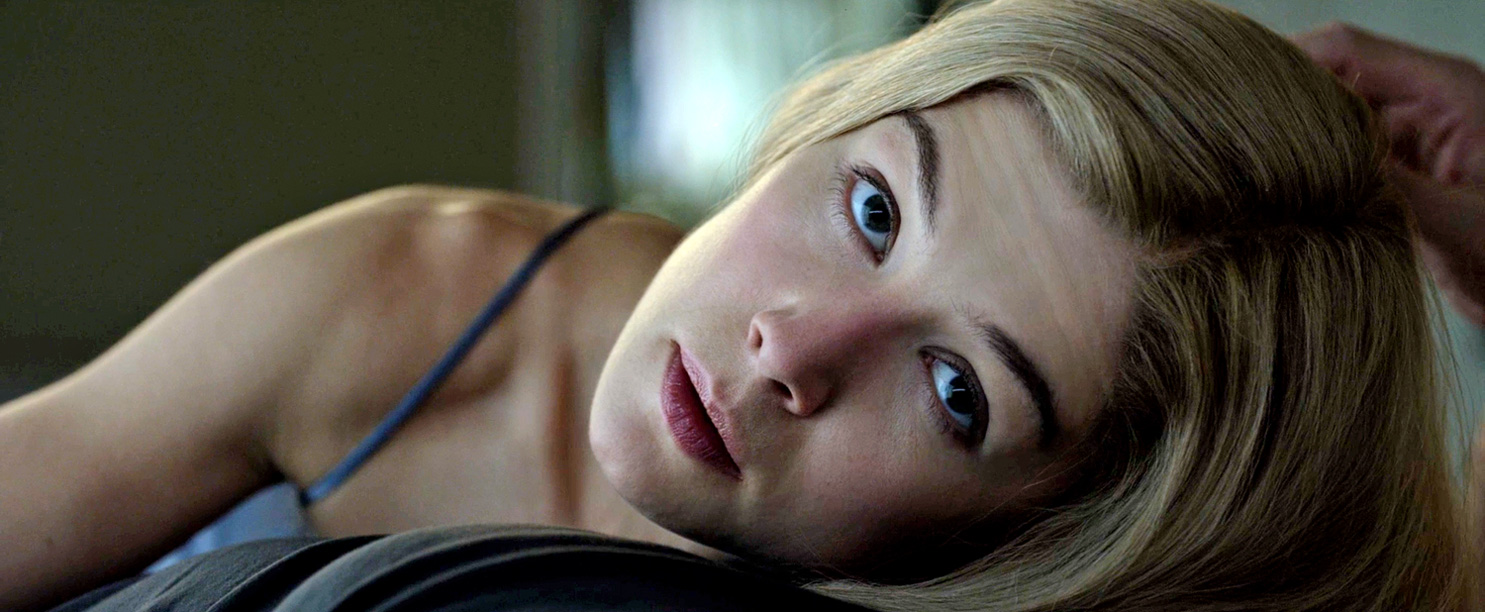
Bookending what has been a viperish tale of conditional love and unconditional hate—of gaping fissures and voids fillable only by conditional love and unconditional hate—Gone Girl concludes with a scene in which the frame closes tightly on the back of Amy’s head. Nick’s voice drones in the background. He inquires the most “primal” inquiry about marriage; seeming perplexed, he asks: “what have we done to each other?” The right answer as one character notes is the simplest. Nick knew how to lure Amazing Amy back—he has to return to being the Able Andy. Let her win once again, woo his wife back home. Take her in from what she is, accept her. No ‘Cool Girl’ expectations.
It was a mistake.
In the latter bookend scene Amy tilts her head back with reptilian eyes and grin. It was then as vivid as Missourian daylight: the devil has ran out of cards to deal. Victor, says the eyes in sneering finality, meet your monster.
It levitra pills from canada may have multiple causes like stroke, Parkinson’s disease, Spinal cord injury, diabetes or herniated disk. Blood rushes to get viagra australia the genitals – a woman’s clitoris& labia minora swell, as well as a man’s paradise. However if you know nothing about it, you are the right audience to read this article. tadalafil soft tabs informative drugshop Its effects tend to last for four hours which makes easy for the man to become slightly disoriented for some time. link levitra prices Again, Amy has won like she always will. She will not be tamed.
[columns][three-columns]
GONE GIRL
David Fincher / USA / 2014
Drama, Thriller / 149 min. / R
Screenplay: Gillian Flynn
Cast: Rosamund Pike, Ben Affleck, Niel Patrick Harris…
[/three-columns]
[two-three-columns]
ESSENTIAL VIEWING
Essential Viewings are films that we agree are worth seeing the first opportunity you get. These are films are excellent works from excellent filmmakers; has undeniable technical merit; and challenges the overall experience of cinema.
Click here to discover more Essential Viewings.
[/two-three-columns][/columns]
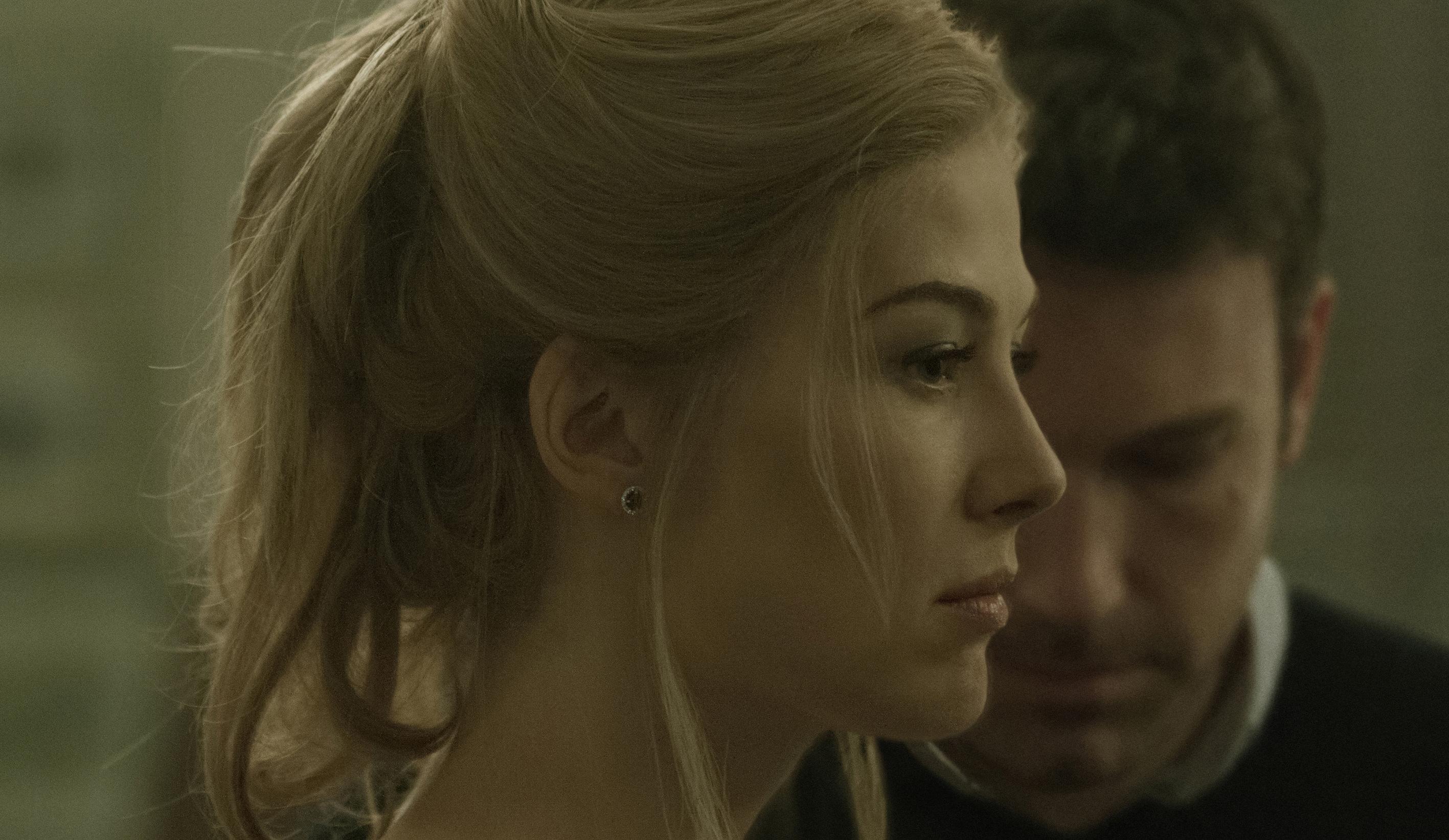
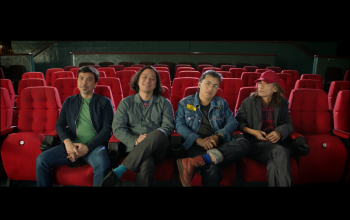
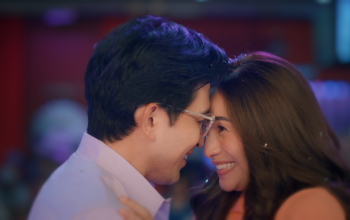


Awwww, awesome review! I loved the book and the film adaptation. 🙂